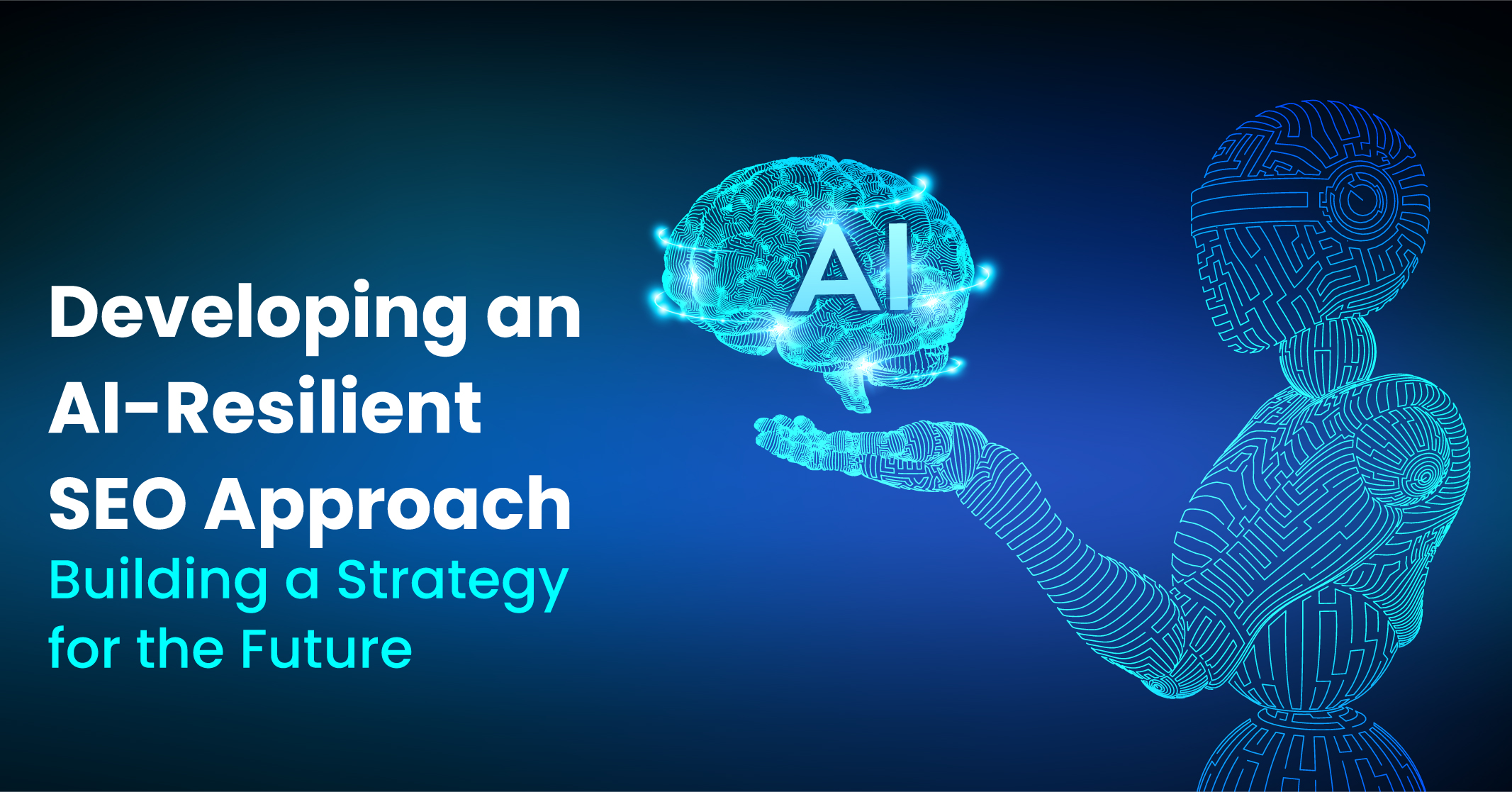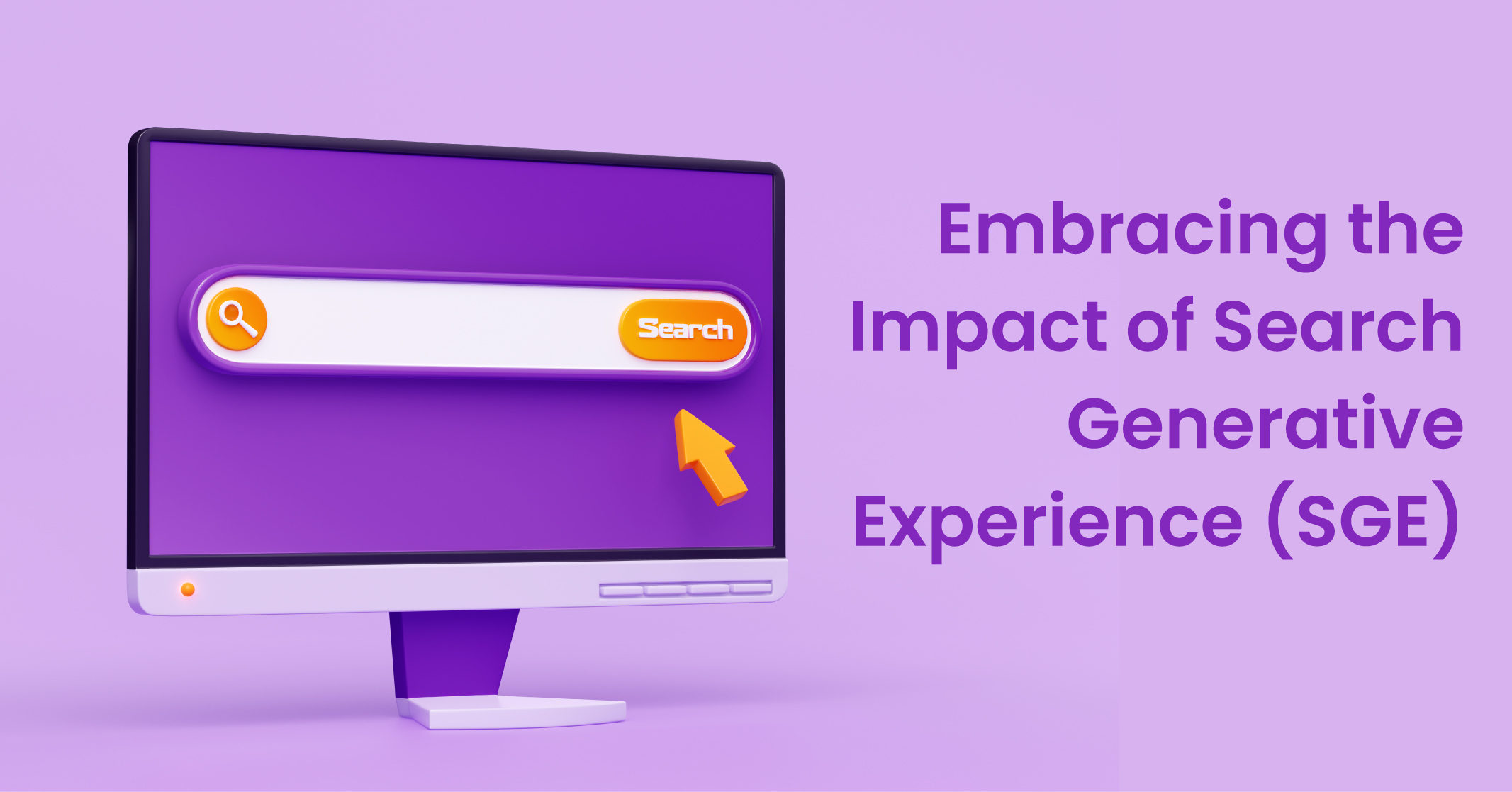I hope you enjoy reading this blog post.
If you want to get more traffic, Contact Us

Click Here - Free 30-Minute Strategy Session
Be quick! FREE spots are almost gone for this Month. Free Quote

Over six months have passed since the launch of ChatGPT by OpenAI, marking a significant milestone in the AI landscape. During this time, notable developments have taken place, including the introduction of Google’s Search Generative Experience (SGE), an AI-powered search beta. Additionally, ChatGPT has enhanced its capabilities by incorporating the Bing plugin, empowering users with more robust search functionalities.
Google’s own AI chatbot, Bard, has also made its debut and undergone subsequent improvements. The prevalence of AI discussions has gradually subsided from the initial fervour, but the technology’s immense potential and practical applications continue to fuel ongoing conversations.

Click Here – Free 30-Minute Strategy Session
Be quick! FREE spots are almost gone for this Month
In recent months, there has been a slight decline in searches related to “chat gpt” (-14.2% according to Similarweb). However, the overall traffic to chat.openai.com remains on an upward trajectory, despite a potential decrease in mobile traffic. Notably, ChatGPT’s availability as a mobile app has likely contributed to its sustained growth.
In the realm of SEO, these questions are equally relevant. Exploring effective SEO strategies, practical SEO tips, and innovative strategy ideas is crucial to navigate the AI-driven landscape successfully. Staying updated with evolving algorithms, leveraging AI-powered tools, and optimizingscontent for enhanced visibility are some of the key components of an effective SEO approach.
As the AI future unfolds, SEO professionals must adapt their strategies to capitalise on emerging opportunities and challenges. Embracing the symbiotic relationship between AI and SEO will pave the way for sustainable growth and improved digital presence.

To future-proof your business, it is essential to understand the implications of the Search Generative Experience (SGE). However, it’s important to note that SGE is still in beta, and the public version set to launch in December may have significant differences. As of now, there is limited data available on traffic from SGE.
Based on observations from the beta version, it is likely that SGE will drive less traffic to websites ranking for specific keywords compared to the current search experience. This is because SGE provides direct answers to queries, potentially engaging users in deeper conversations with AI chatbots like Bard instead of leading them to websites.
Search Generative Experience can be likened to an amplified Featured Snippet, leaving little space for organic search results. To estimate the potential traffic at stake, consider filtering your search console queries using the regular expression “what|why|where|when|how” and calculate the share of non-branded traffic. This will give you an idea of the potential loss.
However, sites ranking in the carousel on the side may still receive significant clicks. Users often build trust and habits with specific websites over time, even when presented with AI-generated answers. It remains to be seen if searchers are satisfied with the SGE answer or if they click through to websites for more information.
Different keywords will yield varying formats and levels of detail in AI-generated answers. Industries that heavily rely on monetising traffic across the user journey, such as publishers and affiliates, are likely to be most affected by SGE. Retailers, direct-to-customer brands and local businesses may face additional challenges as Google tends to prioritise product and business listings unless the query contains a specific question.
In the SEO landscape, the introduction of SGE will significantly alter the data we work with. Google may update Google Search Console (GSC) with SGE-related data or provide a new tool altogether. Without access to this information, we may lose valuable insights for reverse-engineering search results as we currently do.
In light of these developments, it is crucial to adapt SEO strategy ideas to navigate the impact of SGE effectively. Stay updated on the evolution of SGE, explore alternative SEO strategies, and focus on areas where AI-generated answers may not meet user expectations, such as the Your Money or Your Life (YMYL) space, which is heavily regulated.
As we await the full release of SGE and have more time to analyse its impact and final version, better solutions will likely emerge. In the meantime, we can make informed assumptions about future-proofing strategies based on our current observations and understanding.
Direct traffic serves as a compelling indicator of popularity and often leads to high conversion rates, making it a valuable source of visitors. When organic traffic experiences fluctuations, having a solid base of direct traffic can offer flexibility and alternative avenues for success.
There are multiple strategies to foster the growth of direct traffic:
By focusing on these approaches, businesses can bolster their direct traffic, strengthening their online presence and diversifying their traffic sources to mitigate potential fluctuations in organic traffic.
The concept of search volume can be both a blessing and a curse, as it has been flawed for a considerable time.
To gain a better understanding of how well a keyword can convert, it is advisable to conduct experiments in paid search. By running such experiments, businesses can gather valuable insights into the conversion potential of specific keywords.
In the evolving landscape where the availability of demand metrics like search volume or visibility metrics like keyword ranks remains uncertain, alternative methods are necessary to determine customer preferences and optimise the types of SEO strategies.
One highly effective approach is engaging in direct conversations with customers to uncover their user and search journeys. By interacting with customers, businesses can gain valuable insights into their specific needs and preferences. For instance, someone searching for a mattress might have particular requirements such as alleviating back pain. They may use search queries like “best mattress for back pain,” “best mattress for back pain and sleep apnea,” or “Can a mattress help with back pain.”
If direct customer interactions are not feasible, leveraging AI-powered tools like Humata allows businesses to analyse sales or support call transcripts. These tools enable organisations to extract valuable information from customer conversations, providing further insights into user preferences and search patterns.
By adopting these alternative methods, businesses can compensate for the limitations of traditional search volume metrics and gain a deeper understanding of customer needs, enabling them to refine their SEO optimisation strategies effectively.
Experience and expertise are two aspects that currently cannot be replicated by AI. While it may be possible for AI to achieve expertise in the future, it is not the case at present.
Even if machines were able to replicate experiences to some extent, human beings often find the experiences of other humans more appealing and relatable.
When considering keywords and topics with a strong intent for experiences, travel guides serve as an obvious example. However, even in product reviews or when discussing problems, emphasising the experiential aspect can be effective.
The identity of the content creator already holds significance and may become even more crucial in the future. Certain authors possess a deep connection and knowledge within their respective domains, making them irreplaceable by generic machines.
Consider individuals like Dr Andrew Huberman in the realm of supplements, Tim Ferriss in the field of self-improvement, or Henry Kissinger in diplomacy.
Companies must contemplate how they can onboard the most suitable authors for their topics and potentially secure exclusive rights to their content. It would not be surprising to witness companies licensing content exclusively from industry experts in the future.
Learn More: Tips for Crafting an Effective Content Plan
Topics encompass various angles, including examining pros and cons, highlighting distinctions between similar subjects, and identifying the target audience for a particular topic.
As SGE emphasises specific angles in its search results (although the underlying logic remains unclear and may become more intricate over time), companies must excel at either incorporating all relevant angles into their content or efficiently determining the preferred angle that Google associates with a target keyword. This way, they can adjust their content accordingly to align with search engine preferences.
It’s important to note that angles differ from sub-topics as they represent a distinct perspective on the main topic and its associated sub-topics. Therefore, businesses should prioritise incorporating relevant angles into their content to enhance its comprehensiveness and relevance.
By focusing on incorporating angles into their content strategy today, companies can better cater to the evolving search landscape and optimise their visibility and relevance in search engine results.
AI not only revolutionises the search landscape but also transforms our work processes. One of the most significant advancements brought about by AI, at least for now, is the remarkable speed at which tasks can be accomplished.
Professionals employed at integrator companies, which are responsible for generating organic traffic through content creation, can now produce initial drafts within minutes. This accelerated pace allows them to allocate more time towards refining and adding their personal touch and expertise to the content.
With the assistance of AI, they can further enhance the article by identifying new perspectives, filling in gaps, and employing prompts to periodically refresh and fine-tune the content.
On the other hand, experts working at aggregators—companies that utilise user-generated content (UGC) or product inventory to scale SEO—can leverage AI to develop smart prompts. These prompts enable the efficient generation of vast quantities of information spread across thousands or even millions of pages. By incorporating their insights or leveraging public data, they can contextualise and present data obtained from APIs in a more effective and meaningful manner.
Through the integration of AI into work processes, both integrators and aggregators can harness its capabilities to streamline and optimise content creation, resulting in improved efficiency, productivity, and overall quality.
Learn More: How AI is Changing the Game for Digital Marketing
The ascent of AI has been a gradual process, steadily gaining momentum until it reached a point of rapid advancement. As we now find ourselves at a “cruising altitude” with AI, we are gaining a clearer understanding of its capabilities and limitations.
Having conversations with numerous in-house and agency teams, it surprises me to see many blank stares when I inquire about their utilisation of AI. A significant number of them have never even attempted to leverage its potential, which I consider to be a serious misstep.
Completely abstaining from AI ensures that you form opinions solely based on rumours and surface-level knowledge. To truly future-proof your business, it is imperative to stay actively engaged with AI, continuously pushing boundaries and embracing new possibilities.
By exploring AI and experimenting with its applications, you open doors to discover innovative SEO strategies for 2023. This is especially crucial for small businesses, as they can leverage AI-driven SEO strategies for small businesses tailored to their unique needs and constraints.
Different types of SEO strategies can be enhanced and optimised through the integration of AI, providing businesses with a competitive edge in the ever-evolving digital landscape. Embracing AI allows for proactive adaptation and a proactive approach to future challenges and opportunities.
Learn More: Project Magi: The Future of AI-Driven Search Tools

LEAVE A REPLY